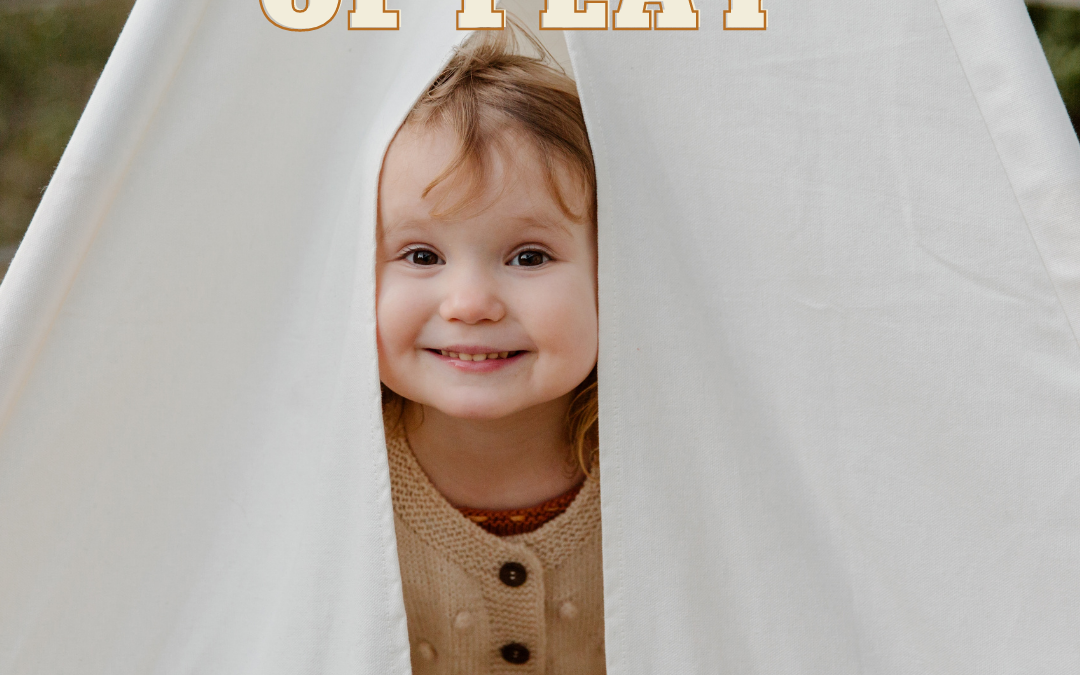“If we were to allow the wonder of the life of a child to reach us fully and truly and to be our teacher, we would have to say: Thank you….for reminding me about the joy and excitement of being human. Thank you for letting me grow together with you, that I can learn again of what I have forgotten about simplicity, intensity, totality, wonder and love.”
-Aurelio Peccei
The Meaning of Play
We share our humanity with children, but as adults, we do not share their consciousness. A child’s mind operates in the concrete, in the now. The mental hardware needed to use symbolic thought, plan, or fret about tomorrow doesn’t begin to develop until around 4 years old. Before this children are pristinely present. An adult’s mind swims in abstractions, oscillating between, to-do lists, future, and past thoughts. These abstractions are made up of a deep understanding of language and nuance. This is how adults make sense of the world. Children, in contrast, orient themselves through activity and play. Their sense making is achieved through meaningful action on their environment. For children, it is play that makes sense.
Play is a human universal. It is the right of childhood, recognized by the United Nations as such. Within child-centered philosophies play is considered essential for human development. Garry Landreth, the founder of The Center for Play Therapy writes, “Play gives concrete form and expression to children’s inner world.” Through play, Landreth writes, children learn to live in the adult’s world of meaning and values.
Play has intrinsic value. Children need no rewards or guidance for it. Child psychologist at UC Berkeley, Allison Gopnik writes, “Children are the research and development division of the human species. Adults are production and marketing.” Similarly, Landreth writes, “The process of play is enjoyed and the end product is less important.”
What Gopnik and Landreth are expressing is that children are exploratory and concrete. They need action and tools for healthy, meaningful expression. Words and concepts are of little use to them. Play allows children to develop symbolic representation of their experience of the world.
In a therapeutic context, play is used with children because it is their primary language of self-expression. Spoken language is secondary. An adult can express their frustration with their spouse through a retelling. A child, in their immediate, action based, world is unlikely to be able to recall and verbally express their frustrations with their younger sibling. They can, however, pretend that a doll is being bad and needs a spanking.
Landreth writes, “Play represents the child’s attempt to organize her experiences, her personal world.” Play is used as rehearsal for life. It can represent a child’s feelings about themselves, their wants and needs, and what they’ve experienced. Play is a light into the child’s inner world. When used therapeutically, play allows children space to freely express themselves in a non evaluative environment with an attuned adult’s presence.
Because adults do not share consciousness with children they often seek to control a child’s experience. And for some experiences, like nutrition, sleep, and safety control is necessary. But for others, especially play, children should be revered as experts in their field.
Children given space and materials for expression and exploration will do so without prompting or reward. They possess an internal compass that guides them to understanding, development, and self-expression. Children can extract meaning, delight, and reprieve from play. If only adults allow them space for their important tasks of research and development.
To read more on this subject and The Wise Child by Shawna Nelson, Montessori guide, alternative educator and graduate student, click here and to follow her on Facebook here
Sources:
Gopnik, A. (2011). The philosophical baby: What children’s Minds tell us about truth, Love & the meaning of life. Vintage Digital.
Landreth, G. L. (2012). Chapter 1 The Meaning Of Play. In Play therapy: The art of the relationship. essay, Routledge.

